Enilda Clinic Learning
Child and Family Therapy
I'm sharing a parent question and answer video I made from my new Facebook group, Positive Parenting Q and A, today.
Today's video focuses on understanding why a child might be responsive and compliant with one parent and not with the other parent and how I address it in therapy. This is a very COMMON question!
I discuss three big reasons for this phenomenon. I also discuss how I approach healing the parent-child relationship to…
Today I'm chatting with Dr. Rubia Subhani. She is a psychologist practicing in Georgia and also a parent to an autistic child. Across her professional and personal journey she has developed a mindfulness practice to help her child manage anxiety and behavior flare ups.
To start off the new year we're chatting with Trina Deboree, an elementary school Media Specialist focused on standards-based reading materials and science/STEM/makerspace. She helps teachers and parents create engaging materials that help foster the love of learning in children.
I'm chatting today with a psychologist who specializes in giftedness, Andrea Lein. She and I really nerded out... for a while. We talk about what giftedness is, what twice exceptional is (when a gifted personal has a learning or emotional disability in school), and how parents can approach supporting twice exceptional children. Enjoy!! (I know we did!)
Meet Jen Wilking! She is a physical therapist and yoga therapist who has honed in on helping people to learn how to relax their mind and body. In this video she teaches us how to breathe properly, and then we do a live demonstration of a 5-minute mindfulness practice. We discuss how breathing correctly and mindfulness can change your stress level and how parents can
I'm discussing child stuttering and the often observed anxiety in children today with speech-language pathologist, Kelly Clendaniel, MS, CCC-SLP. Kelly has a special interest in stuttering as well as a child who stutters. She provides up-to-date information on what parents and providers should know about stuttering. I then jump in with information about how anxiety and anxiety disorders develop and are maintained. Anxiety is increasingly understood to be…
We're discussing toddler sleep!! This is a dreamy topic for many parents out there. Our expert this week is Erica Harren who is a Board Certified Behavior Analyst, or BCBA, and mom of a toddler.
I'm chatting with clinical psychologist, Tiffany Rochester, in Perth, Australia. She specializes in coparenting therapy for divorced and separated parents who aim to work together for the betterment of their child(ren). We discuss what coparenting means, the mindset of providers and parents in effective and ineffective coparenting therapy, the role of the legal system, and common themes of emotions that children display. Many parents have described to me that they feel they're coparenting with
I'm chatting with Dr. Ben Kennert, licensed psychologist in Michigan and Board Certified Behavior Analyst. We're discussing Clinical Behavior Analysis. It entails several different therapy modalities, including my favorites ACT and PCIT. This is a great conversation for those in the counseling or ABA fields looking to understand the concepts and how clinical behavior analysis is used. It is used very differently than ABA, so be prepared for differences.
I'm chatting with the owners of Pacific Northwest Behavior, a Spokane, WA based ABA provider to young children with autism and other developmental difficulties. Kourtney and Steve are BCBAs, and we chat about the important ethical considerations of using ABA to honor autistic people's independence while also helping them to gain more independence.
We dive into differential reinforcement and how parents are likely to encounter this behavioral principal with any child on a typical day.
I'm chatting with Michelle Winebender, a Registered Dietitian and Nutritionist for over 25 years (and a good friend of mine). We chat about how to create healthy eating habits in young children so that they grow up to have a good relationship with food. Michelle helps with the super common questions I get "Is my kid eating enough?" and "Will my child get a nutrient deficit if I can't get them to eat more variety?"
Dr. Blevins is continuing her expert chats this week with Billie Tyler, MS, LMFT out of Spokane, WA who specializes in relationship counseling. She uses the Gottman approach, Emotion Focused Therapy, and Solution Focused Therapy as her orientations. Our conversation includes an overview of what couple's therapy is and the way it can help parents to reach their parenting goals. They discuss how relationship therapy may come on the radar for parents, what some common difficulties are that Billie sees, and the benefits of establishing healthy communication early in any relationship. You can learn more about Billie Tyler, MS, LMFT at https://billietylertherapy.com.
If you're like me, you've been a bit more stressed recently. It's hard not to be. On top of normal everyday life stress, we're having a pandemic and a long awaited social awakening to systemic racism.
It's hard to be present and feel 100% everyday. So, I wanted to share how I'm taking care of myself. I'm specifically going to focus on mindfulness and body awareness. They go hand-in-hand, of course. And if you feel this is a little woo woo of a topic, just hold on through the next paragraph...
Psychiatrist Bessel Van Der Kolk, M.D. wrote a New York Times Best Seller on trauma and the body, The Body Keeps the Score, that went into amazing detail about how our bodies hold the scars of emotional, verbal, and systemic trauma (in addition to physical trauma of course) through dysregulation of our fight or flight or freeze response. In the short term this can lead to poor sleep, digestive distress, and irritability. But, the long term consequences can be devastating. The ACEs Study found that chronic diseases, like hypertension, alcoholism, depression, drug abuse, eating disorders, obesity, and other poor future behaviors and outcomes, like high-risk sexual behaviors, smoking, and suicide and more likely to occur in adulthood with increased risk factors in childhood, including multiple forms of trauma. See ACEs Info here.
When I work with a child, I always consider …
This week's learning video discusses restrictive and repetitive behaviors (RRBs) as they are sometimes seen in high functioning (HFA) individuals with Autism Spectrum Disorder (ASD).
I often see, and many psychologists describe, that children and adults who have reached a higher level of adaptive functioning, or higher cognitive (thinking) skills level, will present differently than a moderately or low functioning person with ASD. First I'll provide some context for how I most often have seen HFA in my private practice among young children and when evaluating a range of ages up through adulthood.
A person with HFA can better compensate because …
It's finally summer!! The stress of homeschooling is over. The governor in Washington just announced that schools will be taking students in for a physical open in the fall. Ahhhh!!!
You deserve a break! You've worked hard doing multiple jobs for 3 months straight. Go ahead and plan that getaway!!
Today's learning topic is for when you come back rejuvenated from break and the kids are settling into their summer routine. Just before they start in with the "I'm bored" statements. Today's topic is about reducing kid frustration and increasing their cooperativeness through environmental arrangement.
Specifically, environmental arrangement is …
You did it!!!
I hope your summer is filled with sun, warmth, and fun. You deserve it!
Before you get started, I want to encourage you to take a few minutes to reflect with your child on how you two (three, four...) worked together these last few months. I have a fun, coloring activity for you to help!
Why?! Because you've stretched yourself and grown so much. It's worth seeing how you've filled those little spaces and accommodated a whole new career (being a teacher!) while still doing all the many other duties of being a parent. I imagine your patience, skill in organizing and prioritizing, and communication have grown. I work with many perfectionistic parents... how did that attribute take a hit these last few months? Are you way more flexible now?
It's important to celebrate your own growth, and to really recognize the skills and resources you used to pull off these last few months. It's important that your child recognize it in themselves and you too. I bet they learned some things about how their brain learns. Many children I know have learned they need to get up and move more than they ever did at school. And they learn better because of it. Did your child learn how to manage their time and to interrupt you less? Maybe that's something they're still working on?? Or, maybe they learned that Mommy does really important things at her job. Or that she helps little brother too, so it's important to wait.
Too often I see parents rush into the next phase of life right after the last hurdle. This creates a sense of always trying to tread water. Pausing for reflection on our strengths and how we've grown helps us to mark the time, joy, achievement, giving us a sense of calm and satisfaction. Additionally this school year, many school celebrations have been cancelled or disrupted. So, yes, you are so key and important to helping your child with this step.
Watch the video for detailed instructions on the coloring activity, and Celebrate!!
Warmly,
Dr. Blevins
Today's video hits on a common theme of concerns I get from parents of young children: language.
Young children can have problem behavior for a variety of reasons, but a common one is poor language development. It is always something I assess when I have a child (of any age) come in for evaluation.
The reason is that poor language skills lead kids to
1) misunderstand what has happened (leading to perceptions of lying),
2) misunderstand what they're told to do (leading to poor compliance),
3) poor articulation (leading to frustration and acting out), and
4) poor expressive productivity (leading to lower self-advocacy skills). These are just a few of the ways language can impact a child.
Every child is unique, and a comprehensive evaluation that includes your child's pediatrician's input and a speech-language pathologist's assessment is the best course to figure out what's going on and how to support your little one.
While language may be one root cause of behavior problems, it is one of many treatment approaches. We can provide interventions beyond increasing language. Other goals include emotion regulation, recognizing cues that signal the child's own needs, and changing stressful environmental situations to be more developmentally helpful.
Warm regards,
Dr. Blevins
In today's video I am answering some of the questions I get from time to time from parents. I'm also chatting about some of the things that I find there to be confusion about regarding this weird time of stay-at-home orders.
The big take away is that there is still behavioral health support available to you, your child, and family. Just reach out to your preferred provider or PCP to figure out exactly what kind of services you may need and how to most safely access those services.
I, and many of my colleagues, have made note of the increased stress that parents and kids are experiencing recently. And daily stress can take it's toll.
You and your family deserve to have support and tools to manage that stress as best as you can. Even if you wouldn't say it's a "problem," you can still pick up some tools to feel better equipped with the day-to-day grind that is so hard for so many people right now. Whether you want a one- or two-session consult or traditional therapy that leads to big transformation of a more prominent difficulty, the behavioral health workforce is up and running!
I'm still feeling so inspired by the compassion that our world is showing to each other during the pandemic. Remember that self-compassion and refueling your tank will allow you to continuing being the rock star that you are!
Warmly,
Dr. Blevins
I've been wanting to get to today's topic for a bit now. Given the pandemic, I've felt that grief (unfortunately) is a timely topic for families these days. Even if your family isn't touched by grief due to the pandemic, it doesn't hurt to be aware of how grief affects children. It's good info to sock away if ever, God forbid, you need to know it.
A disclaimer about the info in today's video: it reflects my review of the literature, which focuses on children's grief of close family members. If your child experiences grief of a more distant family member or friend, watches your personal grief of a lost one, or experienced a related loss (like the death of a pet) they may experience different or varied signs of grief from what I discuss in this video. This video does not go into aberrant or complex reactions to grief. If you ever have concerns, please contact your child's pediatrician.
Grief is a healthy part of the human experience. It tells us that we cared for and loved the lost one. Young children experience grief too because they love too. However, they have less developed language skills, more concrete thinking capacities, and learn how to understand experiences from watching those around them. This video discusses how that makes children's grief look different than adults.
If you're going through grief, this video may be hard to watch. I encourage you to skip it if you need to, watch it with a supportive person, or to seek your own supportive professional to interpret how you can best take care of yourself and any young children who may be grieving too.
Take care,
Dr. Blevins
Dr. Blevins discusses how ACT, Acceptance and Commitment Therapy, describes emotional blocks and supports individuals with pushing through them. She uses a personal example to help illustrate this learning topic and to support moms this Mother's Day as they might be working through heighten stressed due to stay home orders across the country. Emotional blocks can be when we're experiencing a block from our values and have negative feelings as a result.
I'm so excited to share with you a new e-learning tool I've developed, the How to Teach Your Child Directions e-Learning Packet. It is a free step-by-step guide of how to give effective directions to young children and how to respond to them to increase child compliance. The packet is for parents and teachers. It goes through the rationale for each step and gives examples and non-examples. I also give you pro-tips for creating your own two-week plan for using what you learn and noticing the change in your child and yourself. When you sign up to get the packet, you'll also get five emailed pro-tip videos across two weeks giving you additional information on how to stay motivated and effectively use the packet information. The e-learning packet is based on information from applied behavior analysis, acceptance and commitment therapy, and parent-child interaction therapy.
Dr. Blevins discusses another common fear brought up by parents when they've been told by someone, often well meaning, that their child may need therapy or counseling. This fear is that their child may be "crazy" or have something permanently wrong with them. Dr. Blevins discusses how this is not the correct outlook, especially with children. Children are developing rapidly, and often therapy is meant to intervene and get them back on track. With most DSM-5 disorders for children, the symptoms can be remediated with evidence-based, high-fidelity interventions, or therapy. A new way of thinking of therapy is coaching for the soft skills in life, like emotional, social, executive functioning, and language skills, that a child will need to be successful. This is similar to having a physical trainer, a coach for a sport, or a tutor in math.
Dr. Blevins discusses the first fear many parents encounter when learning their child may need therapy. Often parents want to know why their child has developed the difficulties they have. This is totally normal! Many parents also take on total responsibility for every outcome in their child's life, leading them to have a deep fear about their own involvement in their child's difficulties. This learning video is about Dr. Blevins experience with many families as they start the therapeutic experience, accept what they can control and what they can't, and learn to embrace self-compassion while owning responsibility for interventions.
Learn about how to do self-care when you don’t have time to brush your teeth, let alone take a leisurely bubble bath. Dr. Blevins uses Acceptance and Commitment Therapy concepts to teach psychological flexibility concepts as they relate to anxiety, overwhelm, and stress with rigid schedules and hectic responsibilities that parents are facing during normal life and especially pandemic life. A focus on identifying value tokens, defusing from stuck thoughts, and committed action are addressed.
Functional academics are the basic life skills that academic learning helps us to do competently. This gets right to the point of academics. It's where the classroom meets real life. Does your child understand why and how they might use academics in real life? Homeschooling can be fun because you can focus on exploring more rather than rote practice. Maybe you do some FUN activities at home to demonstrate the usefulness of academics (while getting them to do a little reading or math). This includes cooking, grocery shopping, fixing things around the house, getting dressed, learning routines, etc. These types of activities build math skills, reading, organization, memory, and social skills. You can go to previous Enilda Clinic videos about praise to learn more about how to really target these skills when you're doing functional academics. Be creative and take pressure off yourself and your child to sit for hours doing school work by focusing on the functional parts of academics.
Dr. Blevins describes the hidden opportunity parents have as they are taking on instruction roles during isolation. Specifically parents have a first-observer role watching their children learn. This allows them to see how their children learn best and what doesn’t work to support them best. If your child is in regular or special education, this type of information will be valuable for advocating for your child next school year with his or her teacher. You have the opportunity to collect data to support your child’s teacher in making evidence-based decisions. Additionally you have the opportunity to try out new strategies that typically aren’t used in the classroom. Be sure to keep notes, or data, about what you’re observing so that you can support your child and their teacher next school year.
This video is for parents of young children or other caregivers working with young children. Dr. Blevins discusses how to use verbal descriptions of your child's play, similar to how sportscasters describe athlete's plays, to help children stay focused. This strategy can support your child in learning to attend to various new parts of a toy or in more complex interactive play, it helps build sustained attention, and helps reduce impulsive movement from toy to toy.
Many parents want their children to understand the underlying values behind apologizing or saying "I'm sorry". They try to help their children to engage in apologizing by encouraging the behavior from an early age. But often I see a paradoxical effect where children experience resentment, agitation, anger, and relationship distancing when they are made to apologize. This video discusses how parents can decide for themselves what values they intentionally want to teach by encouraging the behavior of apologizing, and how to teach apologizing to emphasize those values with toddlers and preschoolers. We discuss modeling, praise, approximations of the goal behavior, rehearsing, and value labeling as strategies parents may want to consider.
Dr. Blevins tells you how she's engaging in self-care this week. Needs may change as the pandemic changes or isolation is prolonged. Each person should consider where they need support in their life and strive to create ways to provide self-compassion and active coping through self-care that best suits them.
Dr. Blevins' personal strategies include:
1. Taking time for personal life every day. No more workaholic lifestyle. 2. Doing physical tasks/activities that create an inner monologue of caring for one's self, like cleaning the home, doing fun personal grooming, etc. 3. Daily outside exercise 4. Creating space for normal everyday topics 5. Using a heating pad as recommended by a pharmacist to reduce eye strain and tension headaches from increased online work 6. Call people in my social network more often. Recognizing that they are wanting the support as much as me.
Categories
Don’t miss out on a new learning video or hosted event.
Join the mailing list
Still have questions about the services provided by Enilda Clinic? Contact Dr. Hayward to learn more about child & teens assessments, parenting leadership services, young child therapy, or payment options.



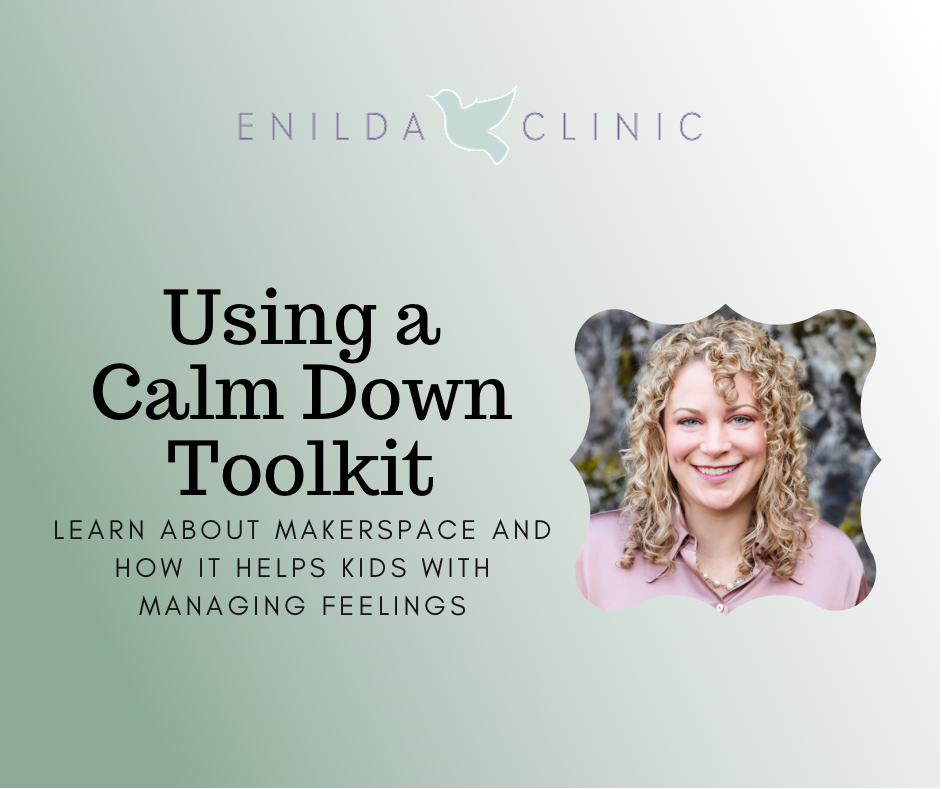


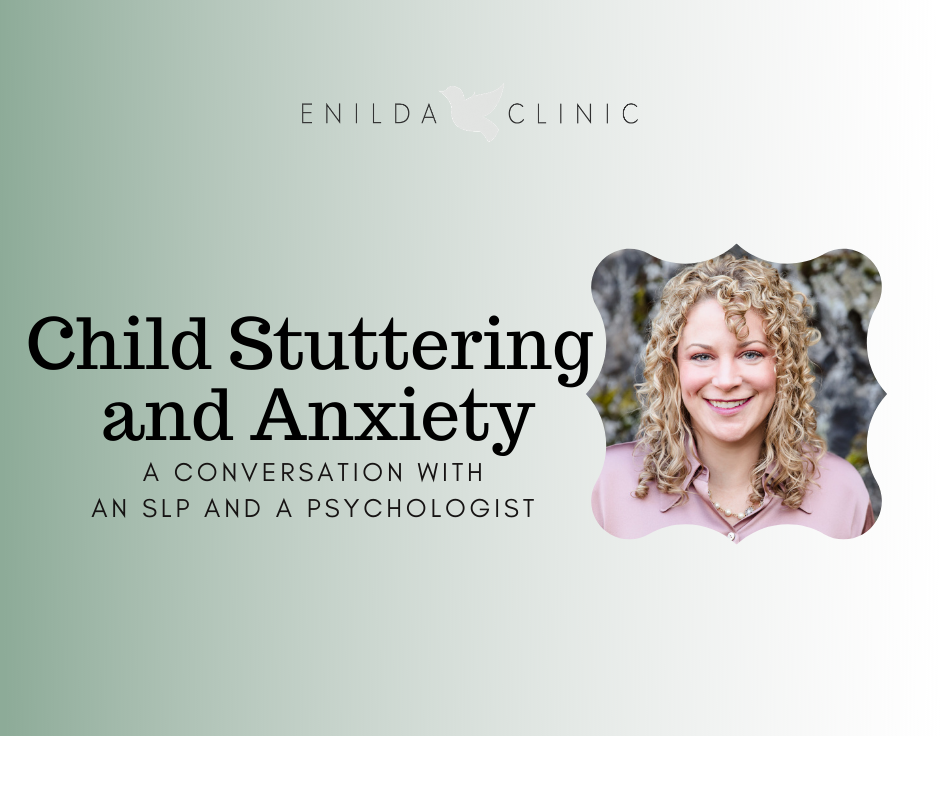
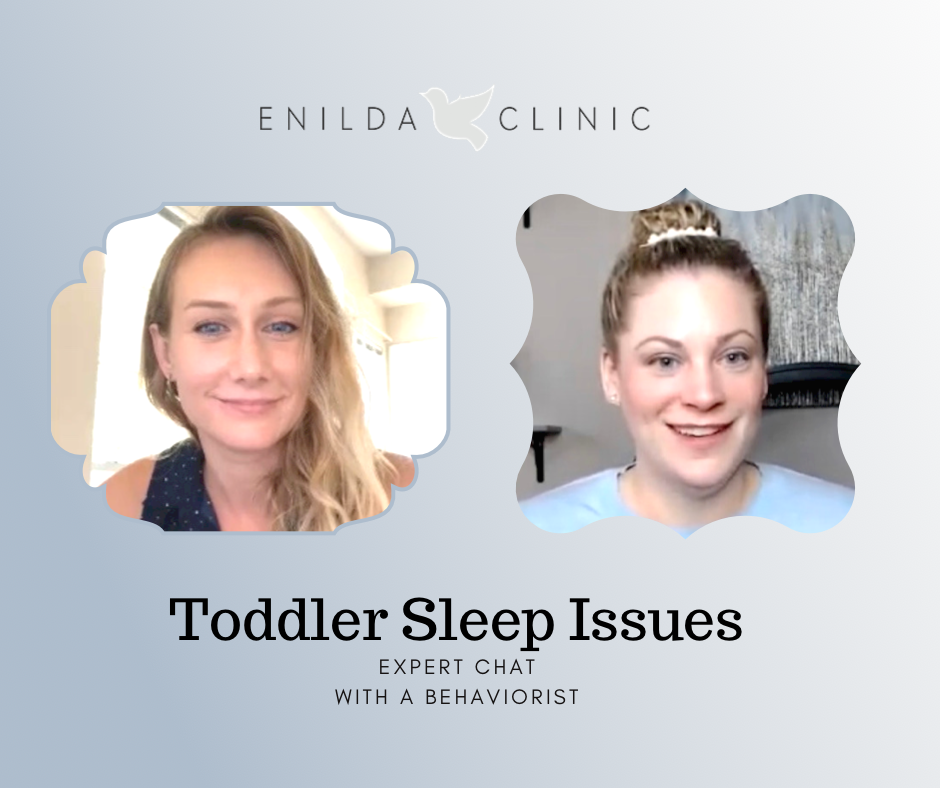
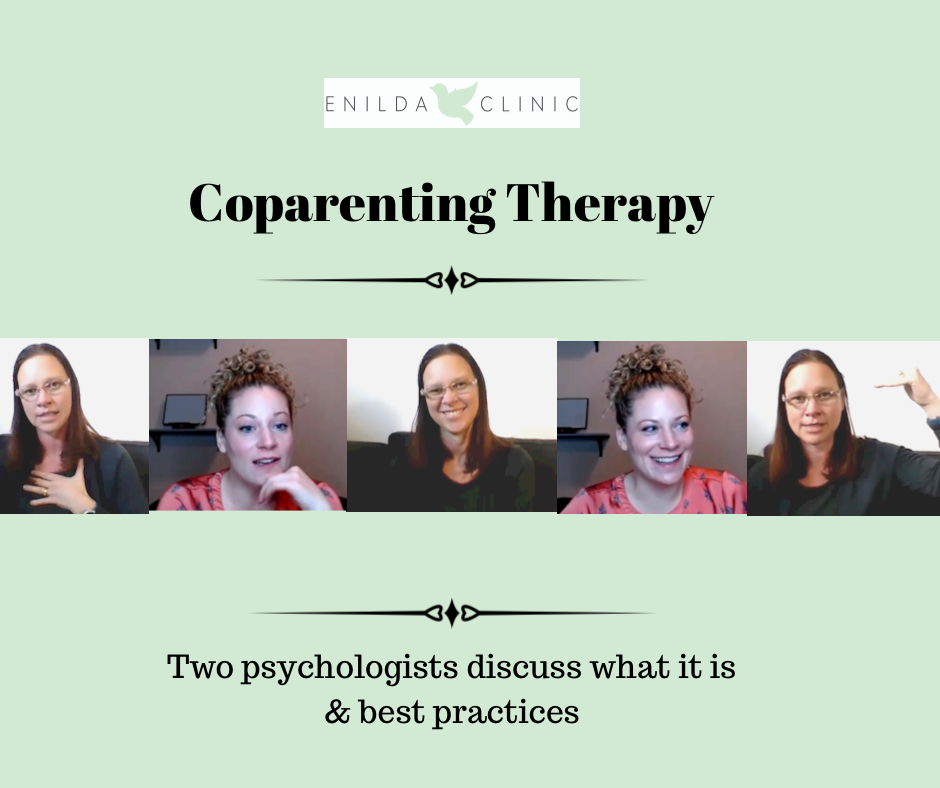
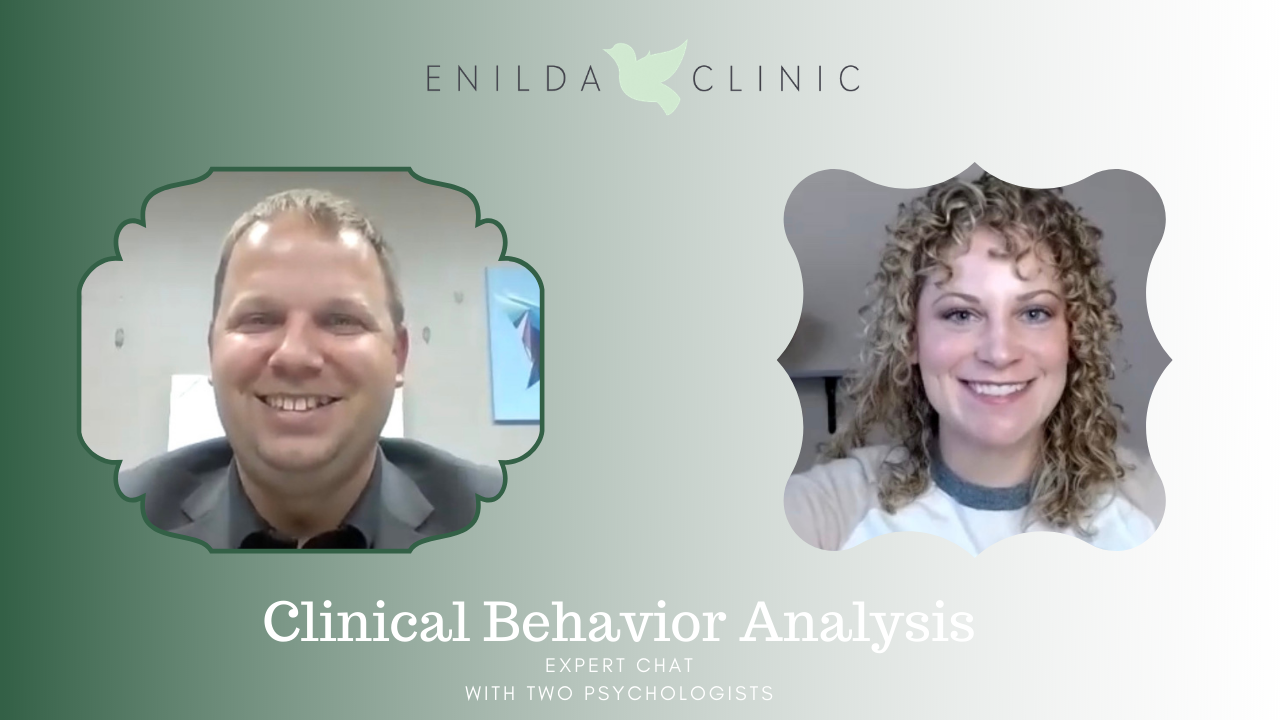


















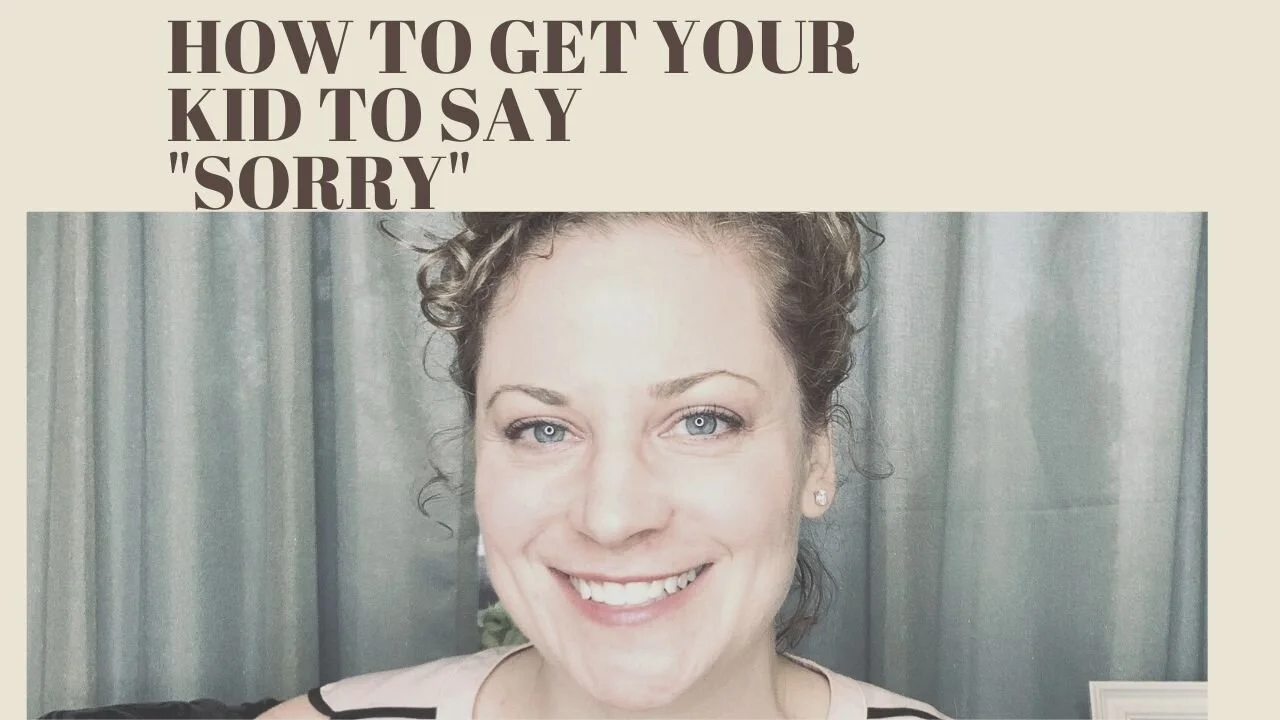

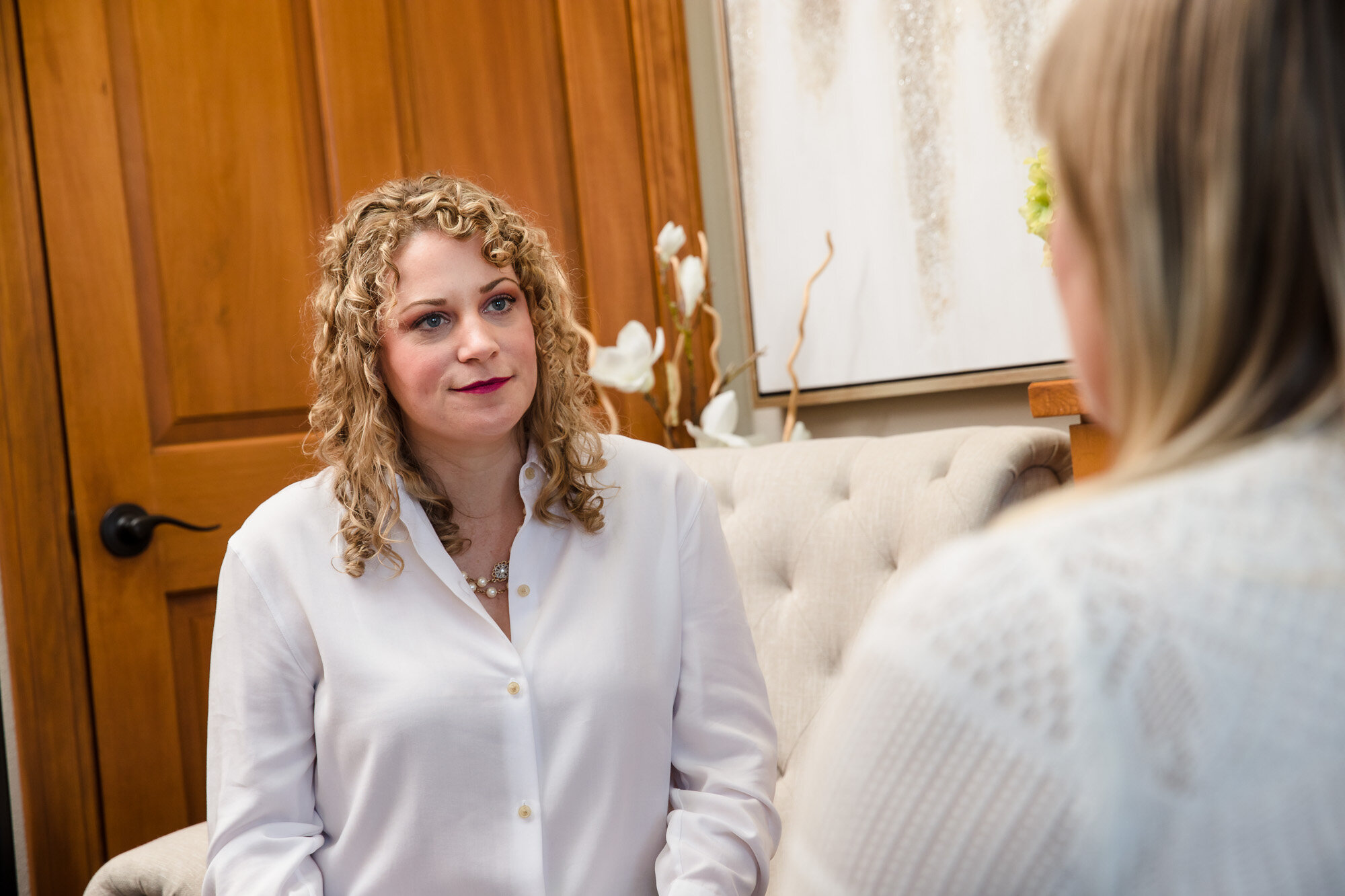
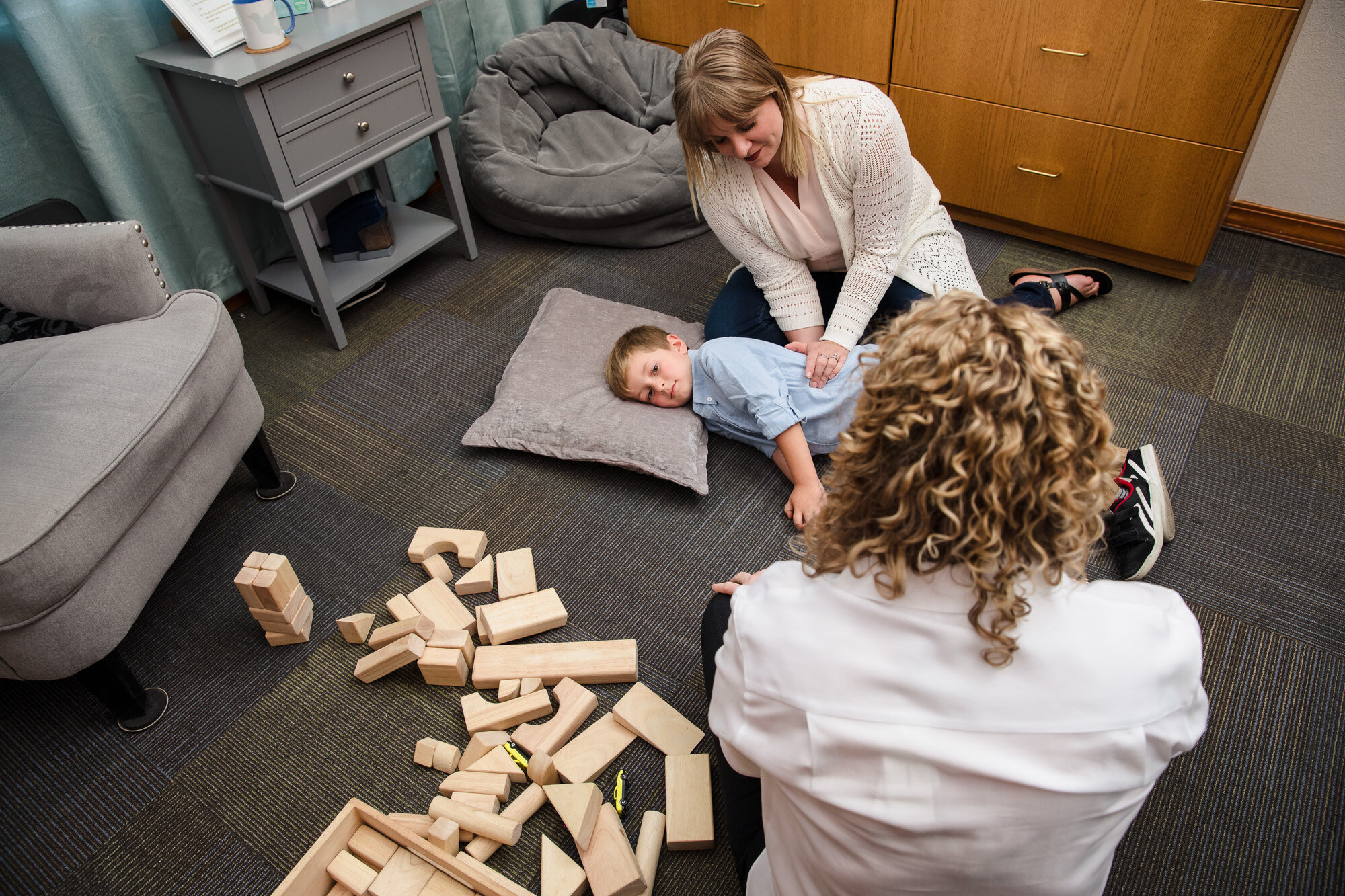
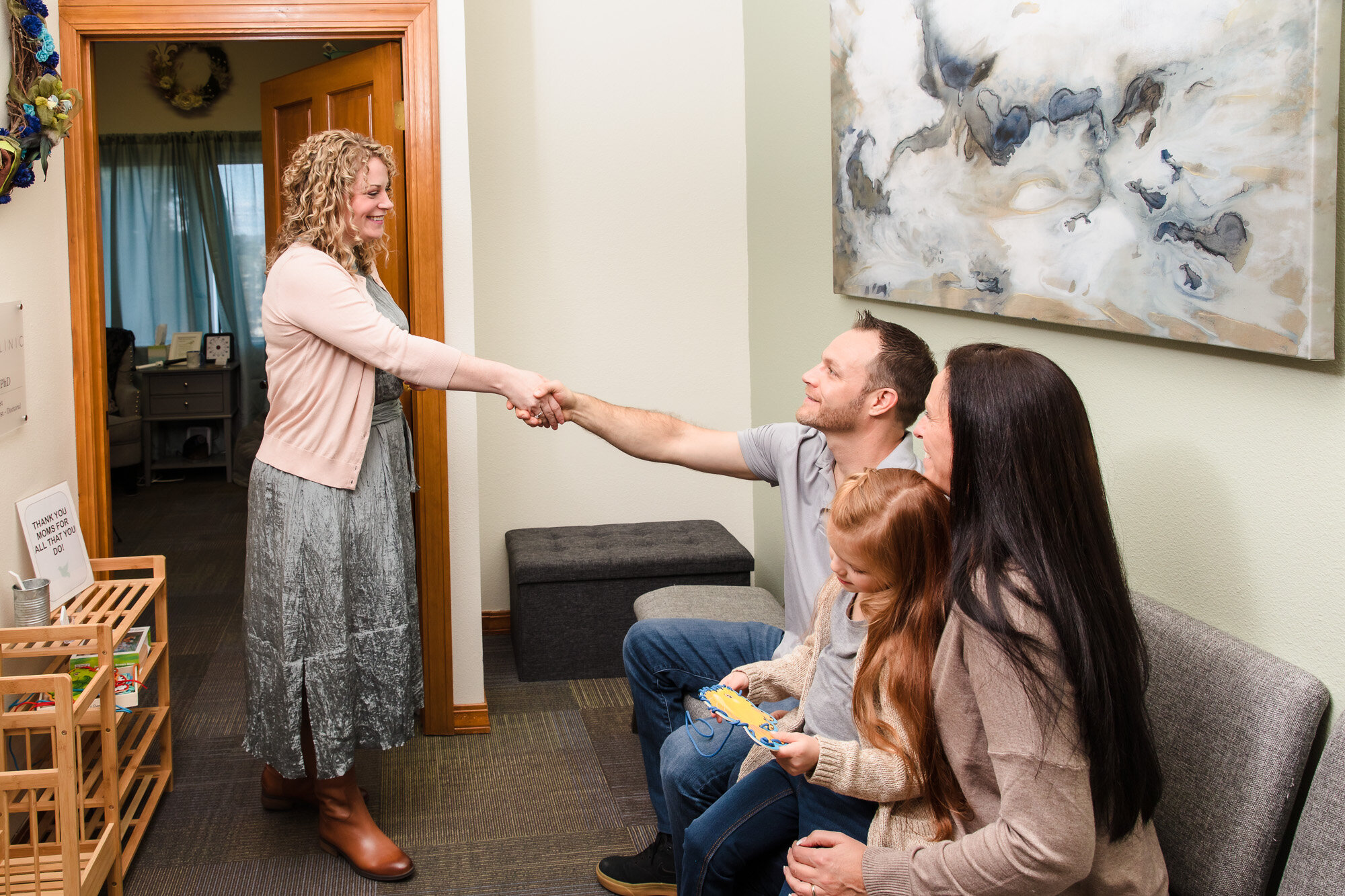
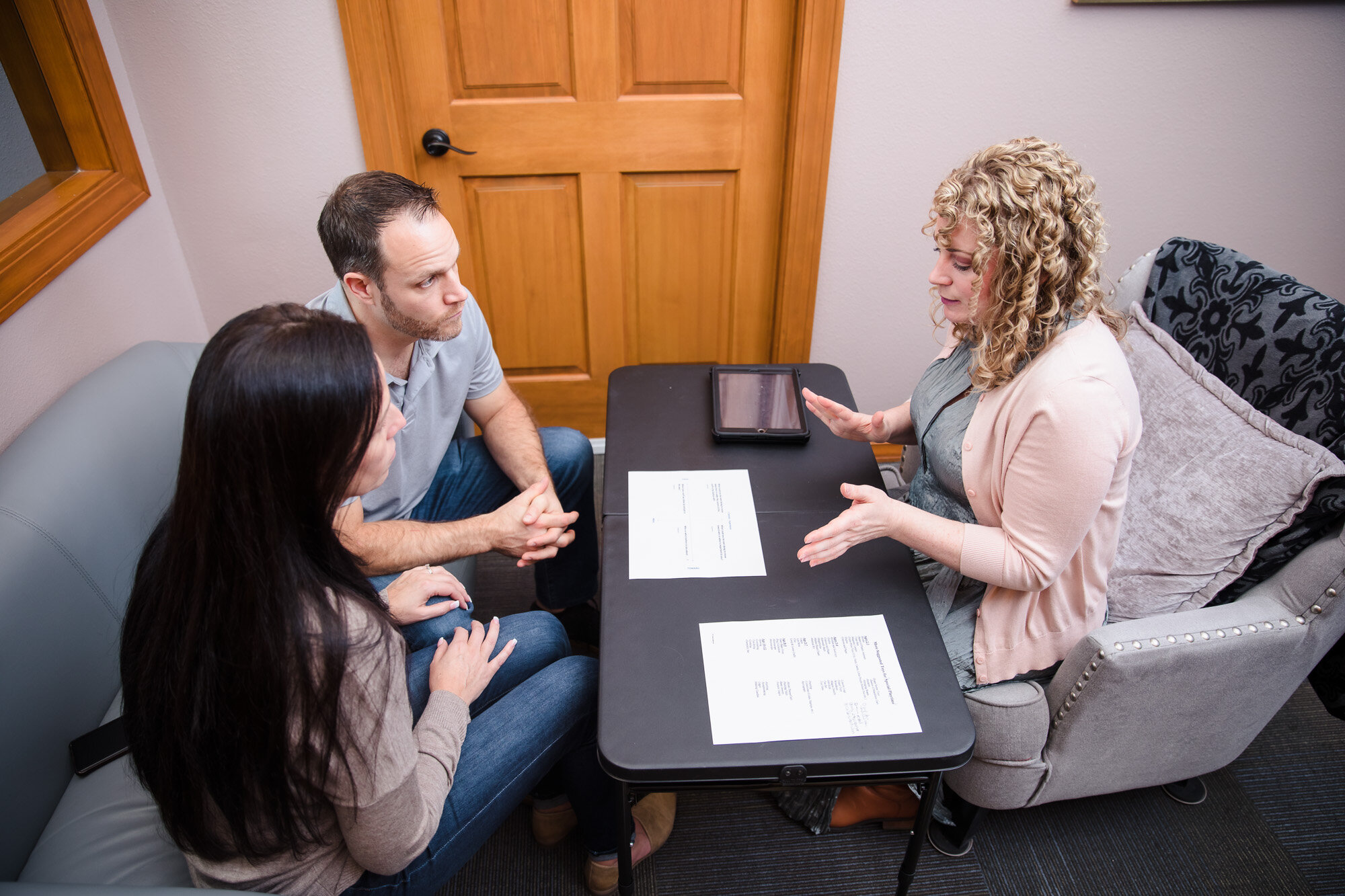


Today we are talking about alternative treatments for supporting your child's behavior. Alternative treatments might be things like essential oils, elimination diets, using the moon to decide when you will go out for fun activities versus hunkering down in anticipation of naughty behavior, and other types of old wives tales and Instagram / Pinterest wisdom that is not necessarily linked to evidence-based studies. Many providers, including physicians, psychologists, therapist, and others, get this question all the time. It's a very important question because it frames the way that you as a parent will approach treatment for your child and the energy and attributions you give to interventions along your child's journey.